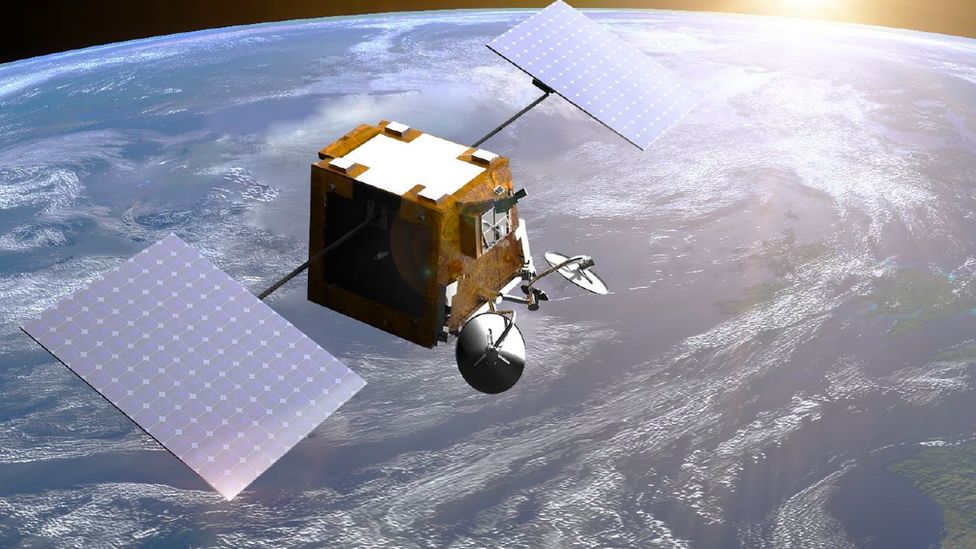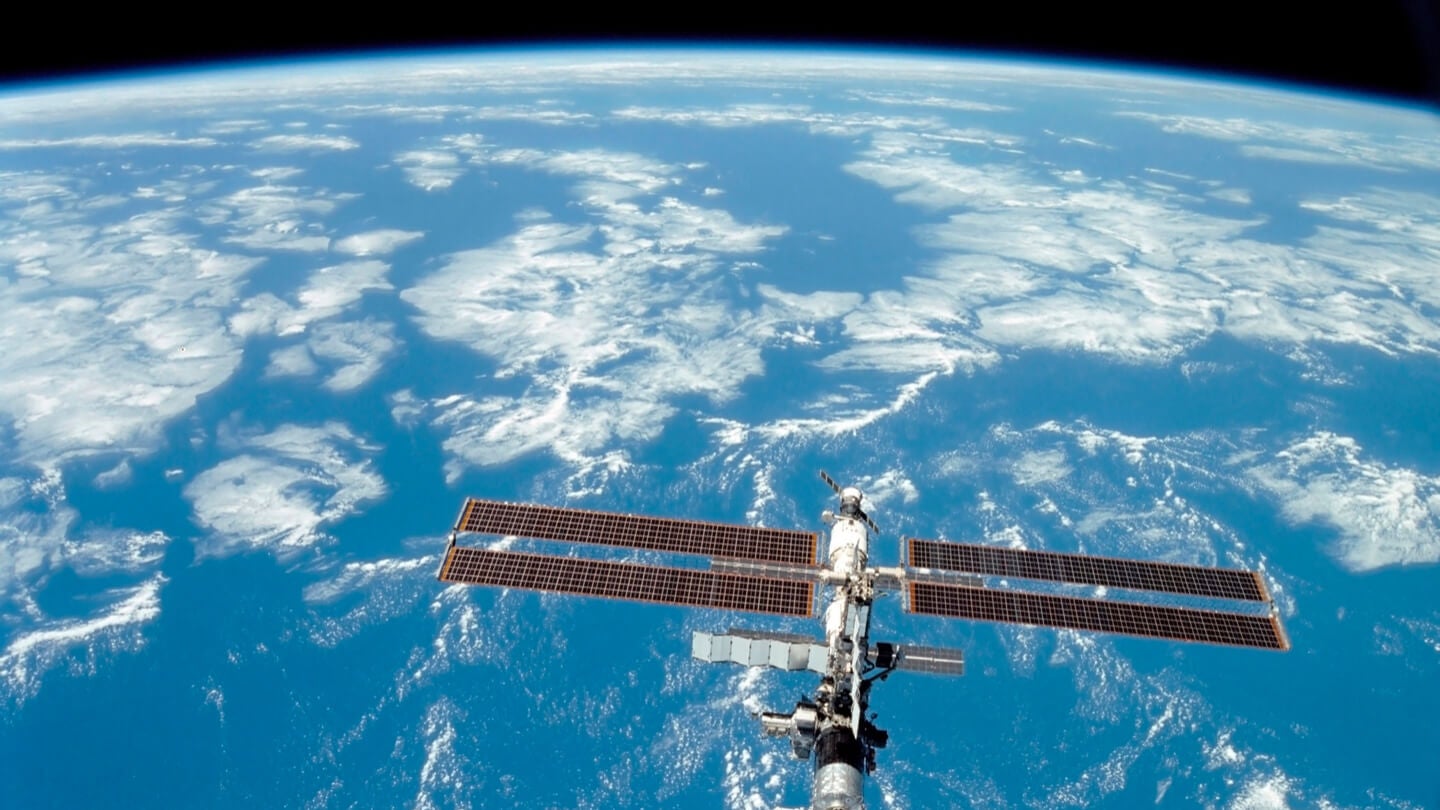LEO
AWS and OneWeb agreement to combine satellite connectivity with cloud and edge computing
Amazon Web Services (AWS) has signed an agreement this week with LEO satellite internet provider OneWeb to explore potential horizontal and vertical use cases that arise from bundling satellite connectivity with cloud and edge compute resources.
The objective is to develop a satellite constellation management solution as a service, making it available to both corporate clients and those already working in the space sector. OneWeb and AWS will work closely together on four key initiatives:
• Business Continuity: Bundling connectivity with cloud services and edge computing services, delivering continuity and resiliency through an integrated infrastructure backed by the LEO constellation.
• Virtualization of Mission Operations: Supporting virtual mission operations for customers through integrated and customizable solutions.
• Space Data Analytics: Aggregating and fusing new levels of predictive and trending big data analytics through data lakes to support space and ground operations.
• User Terminals & Edge Integration: Deploying seamless cloud to edge solutions with a LEO connected user terminal.

Image Credit: OneWeb
“We are incredibly excited to begin working with AWS to see cloud services extended even closer to the edge thanks to OneWeb’s network. This global agreement will change the market dynamics, with OneWeb’s high-speed, low-latency services powering connectivity that will enable customers to reach even the most remote edges of the world and everywhere in between,” said Maurizio Vanotti, VP for new markets at OneWeb, in a statement.
“We are excited to work with OneWeb in their efforts to provide cloud-based connectivity and deliver innovative services to customers worldwide. AWS is committed to helping customers reimagine space systems, accelerate innovation, and turn data into useful insights quickly. We look forward to working with OneWeb in their efforts to push the edge closer to where their customers need it most,” added Clint Crosier, director of aerospace and satellite solutions at AWS.
The agreement serves to highlight the importance of seamless connectivity to enterprise applications and data from just about anywhere. It also underscores just how far behind Amazon is with its own satellite strategy, Project Kuiper.
Its aim is to launch 1,500 LEO satellites over the next five years, increasing to precisely 3,236 over the longer term. So far though, it has launched zero. Amazon was due to launch a couple of prototypes late last year, but a last-minute change of rocket company pushed everything back. It was also waiting on the US Federal Communications Commission (FCC) to approve its ‘orbital debris mitigation plan’, which it eventually got in February.
Amazon’s new launch partner, United Launch Alliance (ULA), plans to include those two Kuiper prototypes on the inaugural flight of its brand new Vulcan Centaur rocket, but lift-off won’t take place until 4 May (May the fourth – geddit?) at the earliest.
This is a fairly long-winded way of saying Amazon is still a long way off from offering commercial LEO satellite broadband and cloud services via its own network, and so this OneWeb deal should give it some valuable real-world experience until its own constellation is ready.
This announcement is the latest effort by OneWeb in its mission to bridge the digital divide and bolster innovation through industry collaboration with best-in-class service providers, serving customers from government, telecommunications, airline, and shipping industries.
Meanwhile, AWS and OneWeb will need to have cloud security high on their mutual agenda, judging by some recent rumblings from the U.S. According to a Politico report last week, the White House plans to draw up cloud security regulations designed to prevent hackers from attacking cloud infrastructure. It will also roll out rules that aim to make it harder for foreign hackers to use US-based cloud providers as a staging point from which to conduct attacks.
With so many government bodies and private enterprises becoming increasingly reliant on public cloud for hosting their data and applications, the underlying infrastructure makes for a juicy target. The fear is that a successful attack could cause widespread disruption if important clients like hospitals and ports are suddenly and unexpectedly cut off.
“In the United States, we don’t have a national regulator for cloud. We don’t have a Ministry of Communication. We don’t have anybody who would step up and say, ‘it’s our job to regulate cloud providers,’” said Rob Knake, the deputy national cyber director for strategy and budget, in the Politico report, adding that this needs to change.
While the White House cracks on with working out how to regulate cloud security, it is also pushing ahead with implementing rules drawn up by the previous administration. The Trump-era executive order will impose ‘Know Your Customer’ (KYC) rules on cloud providers in an effort to stop foreign hackers from using US cloud infrastructure as a platform for their attacks.
References:
https://oneweb.net/resources/oneweb-announces-global-agreement-aws
https://telecoms.com/520618/oneweb-bags-aws-deal-as-cloud-security-comes-under-scrutiny/
OneWeb secures additional funding with goal of 648 total satellites for broadband connectivity by end 2022
OneWeb, the Low Earth Orbit (LEO) satellite communications company that’s emerged from bankruptcy is jointly owned by the UK Government and Bharti Global. The company today announced that it has secured additional funding from SoftBank Group Corp. (“SoftBank”) and Hughes Network Systems LLC (“Hughes”), bringing OneWeb’s total funding to $1.4 billion. The capital raised to date positions the Company to be fully funded for its first-generation satellite fleet, totaling 648 satellites, by the end of 2022.
Prior to the latest funding round, the UK government and Bharti Global held 42.2% stake, respectively in OneWeb with other partners holding the balance 15.6%. “The capital raised to date positions the company to be fully funded for its first-generation satellite fleet, totaling 648 satellites, by the end of 2022,” as per a statement released by OneWeb.
Currently, satellite internet is a great option for residents of rural or suburban areas. Along with basically unlimited availability, satellite internet also offers Wi-Fi connectivity and speeds fast enough for streaming services. In addition to OneWeb, Starlink/SpaceX, Kuiper/Amazon, Boeing and Telesat are investing heavily into LEO satellites, aiming to launch thousands of low-orbiting satellites in coming years.

OneWeb’s mission is to deliver broadband connectivity worldwide to bridge the global Digital Divide by offering everyone, everywhere access including to the Internet of Things (IoT) future and a pathway to 5G.
OneWeb’s LEO satellite system includes a network of global gateway stations and a range of user terminals for different customer markets capable of delivering affordable, fast, high-bandwidth and low-latency communications services. In December 2020, OneWeb launched 36 new satellites, built at its Airbus Joint Venture assembly plant in Florida, USA, bringing the Company’s total fleet to 110 satellites, all fully-functioning and benefitting from International Telecommunication Union spectrum priority.
Sunil Bharti Mittal, Executive Chairman of OneWeb, commented, “We are delighted to welcome the investment from SoftBank and Hughes. Both are deeply familiar with our business, share our vision for the future, and their commitment allows us to capitalise on the significant growth opportunity ahead for OneWeb. We gain from their experience and capabilities, as we deliver a unique LEO network for the world.”
Secretary of State, BEIS, The Rt. Hon. Kwasi Kwarteng, MP said: “Our investment in OneWeb is part of our continued commitment to the UK’s space sector, putting Britain at the forefront of the latest technological advances. Today’s investment brings the company one step closer to delivering its mission to provide global broadband connectivity for people, businesses and governments, while potentially unlocking new research, development and manufacturing opportunities in the UK.”
Masayoshi Son, Representative Director, Corporate Officer, Chairman & CEO of SoftBank, said, “We are excited to support OneWeb as it increases capacity and accelerates towards commercialisation. We are thrilled to continue our partnership with Bharti, the UK Government and Hughes to help OneWeb deliver on its mission to transform internet access around the world.”
Pradman Kaul, President of Hughes, remarked, “OneWeb continues to inspire the industry and attract the best players in the business to come together to bring its LEO constellation to fruition. The investments made today by Hughes and SoftBank will help realise the full potential of OneWeb in connecting enterprise, government and mobility customers, especially with multi-transport services that complement our own geostationary offerings in meeting and accelerating demand for broadband around the world.”
Neil Masterson, CEO of OneWeb, added “OneWeb’s mission is to connect everyone, everywhere. We have made rapid progress to re-start the business since emerging from Chapter 11 in November. We welcome the investments by SoftBank and Hughes as further proof of progress towards delivering our goal.”
In connection with the investment, SoftBank will gain a seat on the OneWeb Board of Directors. Hughes is an investor through its parent company EchoStar, and also an ecosystem partner, developing essential ground network technology for the OneWeb system.
Additionally, OneWeb has reduced its request for US market access from 47,884 to 6,372 satellites. Together with the satellites for which it is already licensed by the FCC, the total constellation size will be roughly 7,000, down from the 48,000 or so proposed last year.
According to the company, this solidification of their constellation demonstrates the commitment and vision of OneWeb’s new owners, the UK Government and Bharti Global, who are dedicated to deploying a cost effective, responsible, and groundbreaking satellite network to deliver global broadband.
The firm stated that OneWeb remains focused on launching its first-generation system of 648 satellites and is on track to start regional commercial services within a year. This streamlining of activities highlights OneWeb’s plan for global connectivity services and for future generations and possibilities for the network.
About OneWeb:
OneWeb is a global communications network powered from space, headquartered in London, enabling connectivity for governments, businesses, and communities. It is implementing a constellation of Low Earth Orbit satellites with a network of global gateway stations and a range of user terminals to provide an affordable, fast, high-bandwidth and low-latency communications service, connected to the IoT future and a pathway to 5G for everyone, everywhere. Find out more at http://www.oneweb.world
References:


